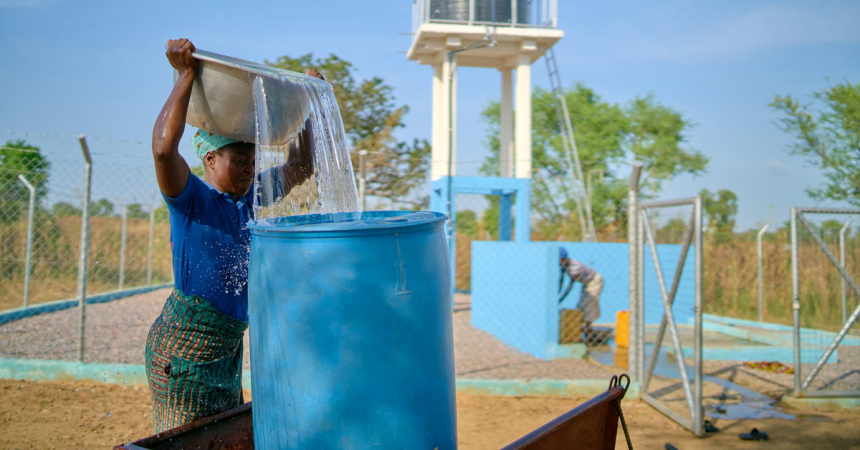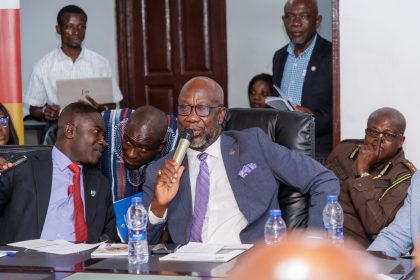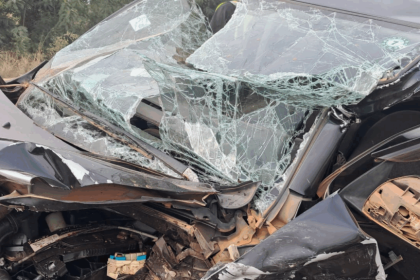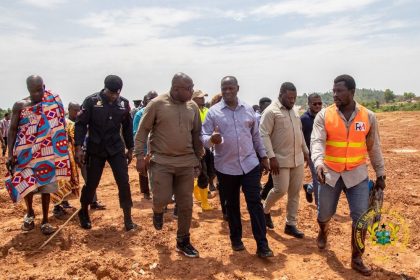ActionAid Ghana (AAG) has encouraged members of communities benefiting from the Community Action Plans (CAPs) intervention, to take ownership and proper care of the water facilities provided to ensure their sustainability and longevity.
It said maintaining the facilities well would ensure that they served both current and future generations, while also attracting more development interventions to the communities.
Mr John Nkaw, the Country Director of ActionAid Ghana, made the call at Pavuu in the Lawra Municipality during a monitoring visit to some project sites under the CAPs intervention as part of his working visit to the Upper West Region.
The projects visited included hand-pump boreholes and mechanised water systems, conservation agriculture (CA) demonstration sites, agroforestry, dams and irrigation facilities in the Lawra, Wa West, Wa and Jirapa Municipalities, among others.
ActionAid Ghana was implementing the CAPs intervention with funding from the Deutsche Gesellschaft für Internationale Zusammenarbeit (GIZ) through the Resilience Against Climate Change (REACH) project under the European Union Ghana Agricultural Programme (EUGAP), co-funded by the European Union and the German Government.
The projects sought to address priority needs identified by the communities in their respective CAPs under the REACH project.
The water facilities were expected to improve access to potable drinking water in the beneficiary communities, enhance socio-economic activities, especially for women, and promote girls’ education.
“We anticipate that these boreholes will build the resilience of the communities and encourage men to support women in domestic chores such as fetching water for the family.
That will help reduce the workload on women, enable them to engage in other economic activities, and reduce domestic violence,” Mr Nkaw stated.
As part of sustainability measures, AAG formed and trained Water and Sanitation Management Committees (WSMCs) in all communities benefiting from the water facilities.
Madam Abiba Nibaradun, the Upper West Regional Manager of ActionAid Ghana, urged the committees to take proactive measures to always ensure the cleanliness and functionality of the facilities.
The women expressed their gratitude to AAG and its partners for the intervention, saying it would ease the burden of water scarcity that had long affected them.
Madam Gladys Gbangpuo, a resident at Pavuu said access to potable water had been a major challenge for some sections of the community and assured AAG of their commitment to proper maintenance of the facility.
At Kalsegr-Gyanvuur, also in the Lawra Municipality, Madam Monica Putiewiir a resident said they previously trekked long distances to fetch water from other communities, which had been a major concern.
“This borehole is a saviour for us. We used to fetch water from Kalsegre-Tangpuor, which is far from here.
Whenever we returned from the farm at night, we couldn’t go there to fetch, but with this one here, we can easily fetch water after work to cook. We are very happy and thankful to ActionAid for this,” she explained.
The CAP Project interventions align with Strategic Priorities One and Three of AAG’s Country Strategic Paper VII, specifically the Focused Areas seeking to promote Agroecology and Food Sovereignty; Expand Access to Green Livelihoods; and Promote Access to Water.
It also contributes to the UN Sustainable Development Goal (SDG) 6, which seeks to ensure availability and sustainable management of water and sanitation for all by 2030.
GNA






